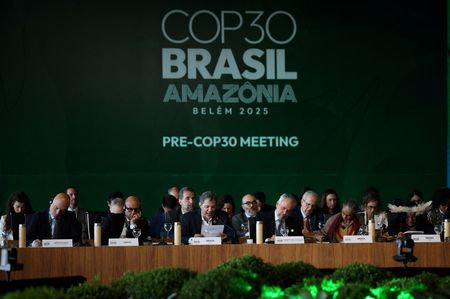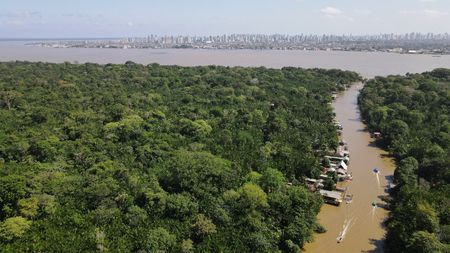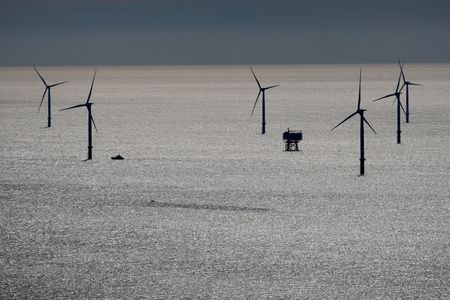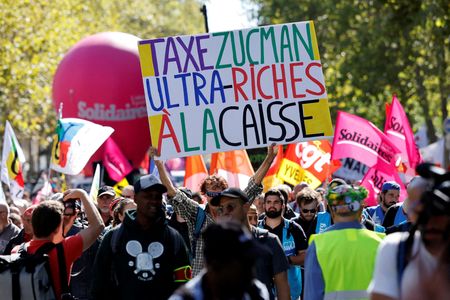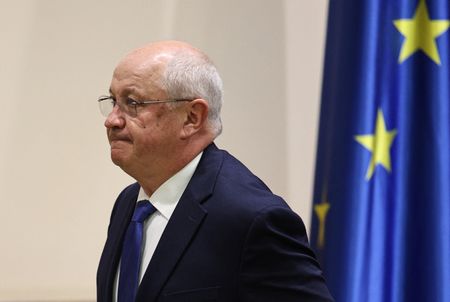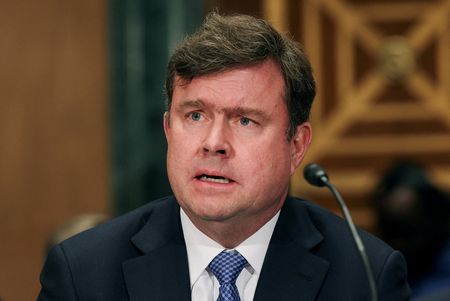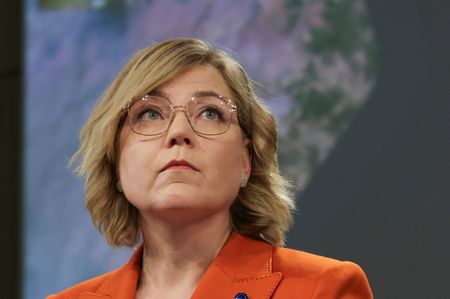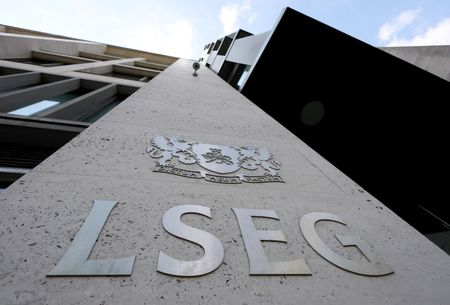By Kate Abnett
BRUSSELS (Reuters) -European Union countries remain split over their new climate change target and are still debating changes, just days before their ministers are due to approve the goal, according to diplomats and EU documents seen by Reuters on Friday.
The EU is racing to approve a climate target, with the European Commission aiming to reduce planet-warming emissions 90% by 2040, even as some member states worry over the costs to struggling domestic industries.
Failure to reach an agreement would leave Commission President Ursula von der Leyen without a target to present when she meets other world leaders at the U.N.’s COP30 climate summit, undermining the EU’s claim to climate leadership.
Asked whether EU governments would agree on a target ahead of the November 6 leaders’ gathering at COP30, one EU diplomat told Reuters the bloc was “walking a knife’s edge”.
Countries including China, Britain and Australia have already announced their new climate targets, but the EU missed a U.N. deadline to do so last month as it struggled to overcome internal disagreements.
CENTRAL STICKING POINTS STILL UNRESOLVED
EU ambassadors gathered in Brussels to lay the groundwork for an agreement on Friday failed to resolve central sticking points, diplomats told Reuters, leaving final negotiations to a meeting of ministers on November 4.
“Ministers will have to work hard on Tuesday,” the EU diplomat said.
That EU diplomat and others, all of whom asked not to be named due to the sensitivity of talks, said it was still unclear if an agreement could be struck.
Support from at least 15 of the 27 EU members is needed to pass the goal.
Countries like Italy and Poland have warned the proposed 90% target is too restrictive, while others, including Spain and Sweden, want ambitious emissions cuts.
DISAGREEMENT OVER FOREIGN CARBON CREDITS
A central point of contention is the use by EU countries of foreign carbon credits from developing nations to meet their targets.
France has said credits could potentially cover 5% of the 90% emissions cuts, while Poland also wants a bigger share. Germany has publicly backed 3%, while others including Denmark originally did not want to use foreign carbon credits at all.
The latest draft proposal, seen by Reuters, showed countries have not yet agreed on the percentage of emissions they can offset with foreign carbon credits – which the Commission, in its original proposal, said should be 3% – or the year they can start employing them.
Ahead of Friday’s meeting, France also proposed a so-called “emergency brake” that could allow countries to reduce the 90% emissions target by 3% in future, if their forests absorb less CO2 emissions than expected.
The proposal aims to win over sceptical governments by addressing concerns their industries could be forced to cut emissions faster to meet the 2040 goal if forests under-deliver.
A French government spokesperson did not immediately respond to a request for comment.
(Reporting by Kate Abnett; Editing by Joe Bavier)

